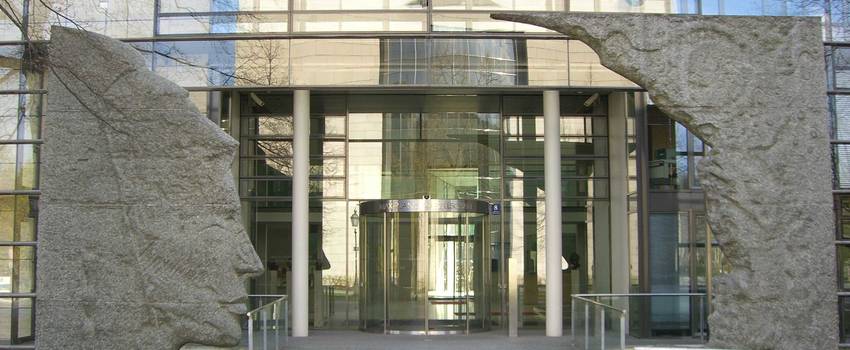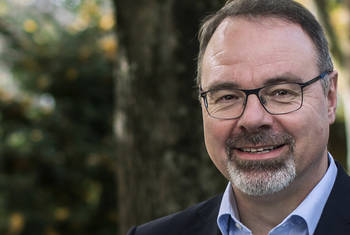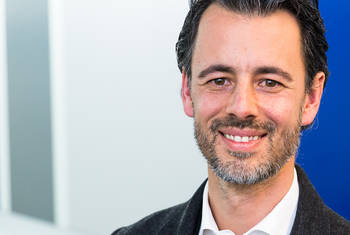Dietmar Harhoff Does the Instrument of Opposition During the Patent Filing Process Need to Be Improved?
Dietmar Harhoff is Director at the Max Planck Institute for Innovation and Competition in Munich where he heads the department of Innovation and Entrepreneurship Research. Furthermore, he is an Honorary Professor for Entrepreneurship and Innovation at the Ludwig Maximilian University Munich. Harhoff’s research focuses on innovation research, entrepreneurship, intellectual property and industrial economics and has been published in a large number of renowned journals. He also serves as a scientific advisor for public and private organizations and chairs the Commission of Experts for Research and Innovation that has been appointed by the German Federal Government. Furthermore, he is an elected member of the German Academy of Science and Engineering (acatech), the German Academy of Sciences Leopoldina and the Bavarian Academy of Sciences (BAdW).
Area of Research
Innovation Research and Management, Entrepreneurship, Strategic Management, Empirical Economics, Industrial Economics, Corporate Finance, Empirical Methods/Econometrics and Statistics, Economic Policy
since 2014
Director
Ludwig Maximilian University Munich (Ludwig-Maximilians-Universität München)
Research Center for Entrepreneurship and Innovation
since 2013
Director
Max Planck Society (more details)
Max Planck Institute for Intellectual Property and Competition Law
since 1998
Director
Ludwig Maximilian University Munich (Ludwig-Maximilians-Universität München)
Entrepreneurship Center
2010
Visiting Professor
Stanford University
Department of Economics and Stanford Institute of Economic Policy Research
2007-2011
Research Professorship
Ludwig Maximilian University Munich (Ludwig-Maximilians-Universität München)
2007-2011
Research Dean
Ludwig Maximilian University Munich (Ludwig-Maximilians-Universität München)
Munich School of Management
2005-2007
Dean
Ludwig Maximilian University Munich (Ludwig-Maximilians-Universität München)
Munich School of Management
2001
Visiting Professor
University of Cambridge
Sloan School of Management
1998-2013
Professor
Ludwig Maximilian University Munich (Ludwig-Maximilians-Universität München)
Faculty of Business Administration
1997-1998
Research Professor
Berlin Social Science Centre (WZB)
1995-1998
Associate Scientific Director,
Centre for European Economic Research (ZEW)
Corporate Taxation and Public Finance
1993-1995
Assistant Professor
University of Mannheim (Universität Mannheim)
1993
Visiting Scholar
Massachusetts Institute of Technology (MIT)
Sloan School of Management
1991-1993
Senior Researcher
Centre for European Economic Research (ZEW)
1985
Research Engineer
Institute for Production Systems and Design Technology (IPK)
1984
Visiting Scientist
University of Birmingham
Department of Mechanical Engineering
1996
Habilitation in Economics
University of Mannheim (Universität Mannheim)
Faculty for Economics and Statistics
1991
PhD in Philosophy
Massachusetts Institute of Technology (MIT)
Sloan School of Management
1987
Master of Public Administration
Harvard University
John F. Kennedy School of Government
1984
Diplom in Mechanical Engineering
Center for Research on Education and School Development (IFS)
Department of Mechanical Engineering
- Academy of Management
- American Economic Review
- Econometrica
- Economics of Innovation and New Technology
- Empirical Economics
- European Economic Review
- ifo-Studien
- International Journal of Industrial Organization (IJIO)
- Jahrbücher für Nationalökonomie und Statistik
- Journal of Banking and Finance
- Journal of Empirical Finance
- Journal of Engineering Technology Management
- Journal of Labor Economics
- Journal of Population Economics
- Management Science
- RAND Journal of Economics
- Regional Science and Urban Economics
- Research Policy
- Review of Economics and Statistics
- Small Business Economics
- Zeitschrift für betriebswirtschaftliche Forschung (ZfbF)
- Zeitschrift für Betriebswirtschaft (ZfB)
- American Economic Association (AEA)
- Center for Economic Policy Research (CEPR), London
- Center for Economic Studies (CESifo), Munich
- European Association for Research in Industrial Economics (EARIE)
- European Economic Association (EEA)
- Institute for Fiscal Studies (IFS), London
- Verband der Hochschullehrer für Betriebswirtschaftslehre e.V. (VHB)
- Verein für Socialpolitik (VfS)
- Zentrum für Europäische Wirtschaftsforschung (ZEW), Mannheim
Prizes
- Schumpeter School Award for Corporate and Economic Analysis (2013)
- MIT Sloan School of Management Dissertation Award (1991)
- Doctoral Scholarship Massachusetts Institute of Technology (1987-1991)
- McCloy Scholarship (1985-1987)
- Stipend, Studienstiftung des Deutschen Volkes (1980-1984)
- Abitur Award Abiturientenvereinigung Ahlen e.V. (1978)
Fellowships
- Elected Member of the Bavarian Academy of Sciences (BAdW) (2015)
- Elected Member of the German Academy Leopoldina (2010)
- Elected Member of the German Academy of Science and Engineering (2008)
 © Maximilian Dörrbecker
© Maximilian Dörrbecker
Max Planck Society
"The Max Planck Society is Germany's most successful research organization. Since its establishment in 1948, no fewer than 18 Nobel laureates have emerged from the ranks of its scientists, putting it on a par with the best and most prestigious research institutions worldwide. The more than 15,000 publications each year in internationally renowned scientific journals are proof of the outstanding research work conducted at Max Planck Institutes – and many of those articles are among the most-cited publications in the relevant field." (Source)
Institute
Max Planck Institute for Innovation and Competition
The Max Planck Institute for Innovation and Competition was founded in Munich in 1966 as the Institute for Foreign and International Patent, Copyright and Competition Law. During the following decades, it became instrumental in the development of the areas of law that it dealt with. In 2002, in conjunction with new appointments, its scope of research was extended to include core areas of antitrust law and tax law - hence, the change of the Institute’s name to the Max Planck Institute for Intellectual Property, Competition and Tax Law. After the establishment of an additional department for financial economics in 2008, this Institute was replaced, with effect from January 1, 2011, by the MPI for Intellectual Property and Competition Law and the MPI for Tax Law and Public Finance. Together with the MPI for Foreign and International Social Law, these two Institutes form the Munich-based Max Planck Campus for Legal and Economic Research. In 2013, the Max Planck Institute for Intellectual Property and Competition Law was expanded to include a new, economics-oriented department (Innovation and Entrepreneurship Research); in 2014 the Institute changed its name to Max Planck Institute for Innovation and Competition. (Source)
Map
Patents are a very useful tool for supporting innovations by setting incentives for companies to invest in research and developments. However, only those innovations should be protected by a patent that are truly inventive. Otherwise, patents might actually end up stifling innovations rather than supporting them. This happens in the case of patent thickets where there are overlapping patents that block each other. DIETMAR HARHOFF explains that this situation should be avoided by the mechanism of opposition: After the patent is granted by the patent examiner, third parties have the opportunity to oppose the examiner’s decision. As described in this video, the researchers used graph theory to analyze patent thickets involving three companies to uncover in which situations this instrument fails. Their findings indicate that, if a patent holder is embedded in such a thicket, they are less likely to challenge a patent application to avoid an escalation between the parties that might end up in court. Furthermore, if there is a large number of companies that could oppose a certain patent, the incentive for any of these companies to oppose is reduced as only one of them has to shoulder the costs of the process while all of them benefit.
LT Video Publication DOI: https://doi.org/10.21036/LTPUB10333
Conflict Resolution, Public Goods and Patent Thickets
- Dietmar Harhoff, Georg von Graevenitz and Stefan Wagner
- Management Science
- Published in 2016









